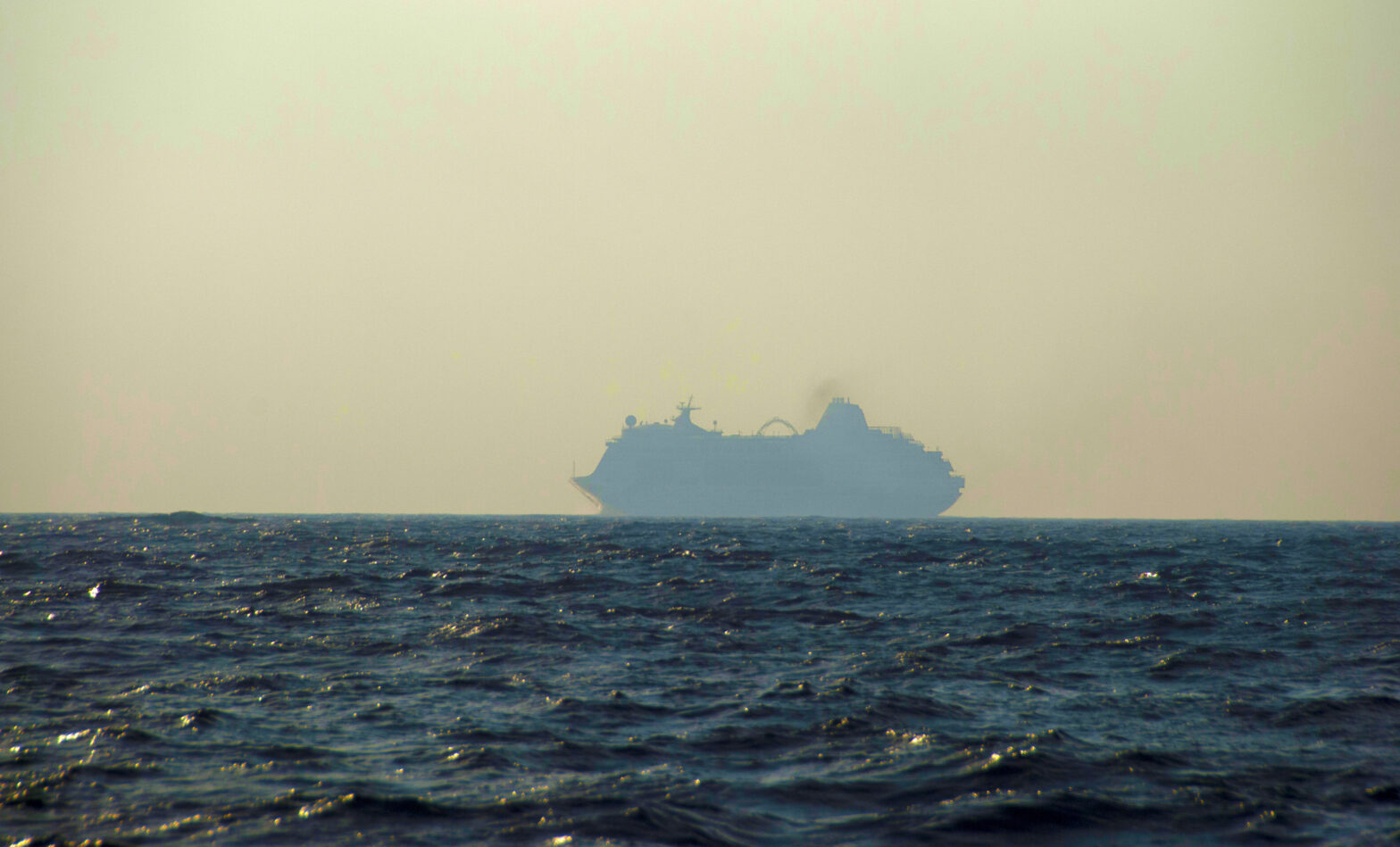Vessel Pollution in Pacific Canada: CEC Secretariat Recommends Factual Record under USMCA / CUSMA Chapter 24
Tiohtià:ke (Montreal), 2 July 2024—The Secretariat of the Commission for Environmental Cooperation (CEC) has just notified the CEC Council, North America’s top environmental officials, and the USMCA/CUSMA Environment Committee, that it recommends developing a factual record to explore the effective enforcement of environmental laws regarding the discharge of wastewater from exhaust gas cleaning systems on vessels off the Pacific Coast of Canada.
The recommendation responds to a Submission on Enforcement Matters, SEM-23-007 (Vessel Pollution in Pacific Canada), under Chapter 24 of the Canada-United States-Mexico Agreement (USMCA/CUSMA) filed by Stand.earth.
The Submitter asserts that exhaust gas cleaning systems (“scrubbers”) capture harmful pollutants, like nitrates, heavy metals, and polycyclic aromatic hydrocarbons, to comply with international air emission obligations for vessels, and that those pollutants are discharged into the marine environment as part of the seawater used to clean the exhaust and operate these systems, which is referred to as “washwater.”
The Submitter asserts that scrubbers discharge washwater that causes pollution to the marine environment and marine species, in violation of Canada’s commitment under the Fisheries Act to protect fish and fish habitat, which includes the endangered Southern Resident Killer Whale population and the ecologically sensitive Canadian and transnational waters of the Salish Sea, Kwakwaka’wakw Sea and Great Bear Sea. The submission alleges that Canada is also failing to effectively enforce the Canada Shipping Act, and the Vessel Pollution and Dangerous Chemicals Regulations to manage these washwater discharges.
In response to the submission, Canada informed the Secretariat of various enforcement activities conducted over the last 10 years, including 120 enforcement activities in relation to vessel pollution in the Pacific and Yukon Region since 2014. Specifically, there have been 14 inspections related to cruise ship discharges, including scrubber washwater, in the region from April 2023 to April 2024.
Canada also discusses its efforts to monitor and address the potential impacts of increasing scrubber use, noting that the number of unique vessels operating in Canadian waters equipped with scrubbers increased from 5% to 18% from 2019 to 2022. Likewise, the amount of washwater being discharged off Canada’s Pacific Coast has increased, doubling from 44 million tons in 2019 to over 88 million tons in 2022. Canada provides data on the pollutants in the washwater and describes the potential impacts on the endangered Southern Resident Killer Whale (SRKW) population stating that it “estimates that marine vessel scrubbers contribute between 40-98% of the loading of priority contaminants within 300 m of SRKW critical habitat.”
The Secretariat finds that a factual record could consider whether scrubber washwater meets the definition of a “deleterious substance” under the Fisheries Act and provide information on enforcement of s. 36(3) with respect to discharges of scrubber washwater into waters frequented by fish. A factual record could also present information on the effects of scrubber washwater, including its pollutant components, on the endangered Southern Resident Killer Whale population, Chinook salmon, and other fish species, as well as the marine environment in general.
The Secretariat finds that a factual record could explore whether scrubber washwater meets the definition of “pollutant” under the Shipping Act and enforcement of s. 187 with respect to scrubber washwater, including the use of measures like interim orders. Similarly, a factual record could provide information on enforcement of s. 132 of the Vessel Pollution and Dangerous Chemicals Regulations, concerning discharge reporting.
The CEC Council members will consider whether to instruct the Secretariat to prepare a factual record in accordance with USMCA/CUSMA Article 24.28(2). To learn more, please consult the registry page for the submission SEM-23-007 (Vessel Pollution in Pacific Canada).

Cruise ships and other vessels along the Pacific coast of Canada are discharging wastewater containing heavy metals and other pollutants from air pollution control systems into the ocean.
The CEC SEM Process
The CEC Submissions on Enforcement Matters process supports public participation, information-sharing between governments and the public, and transparency and openness in the effective enforcement of environmental law in North America. If you have reason to believe that an environmental law is not being effectively enforced by Canada, Mexico or the United States, the SEM process may address your concerns.
As of 1 July 2020, the CEC’s SEM process is governed by USMCA Articles 24.27 and 24.28 of the Environment Chapter of the free trade agreement between Canada, Mexico and the United States (CUSMA, T-MEC, USMCA).
Want to learn more about the SEM process? Please watch this two-minute video for an introduction:
